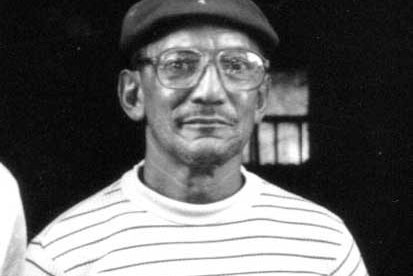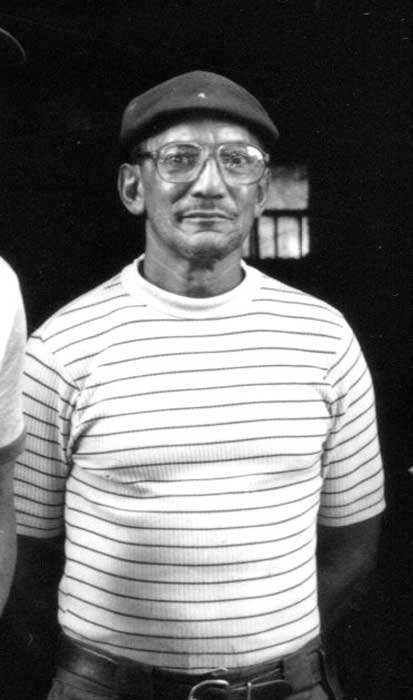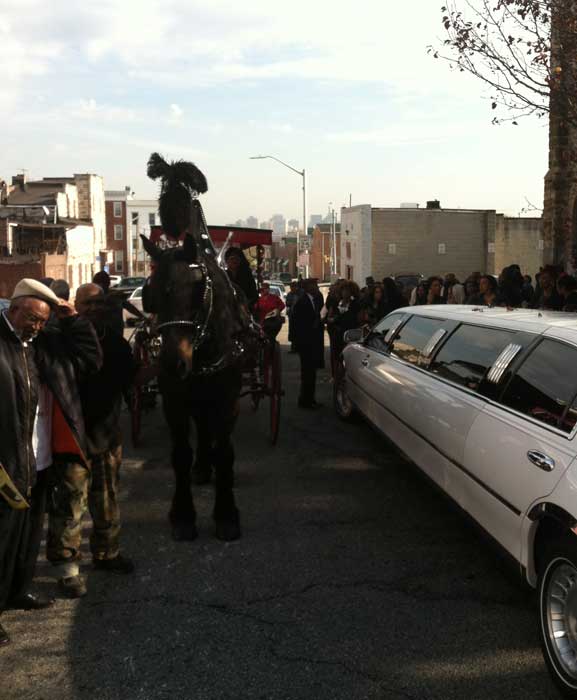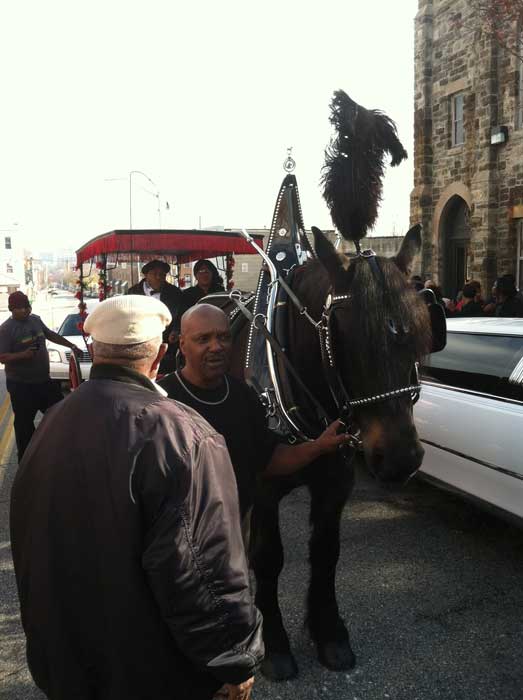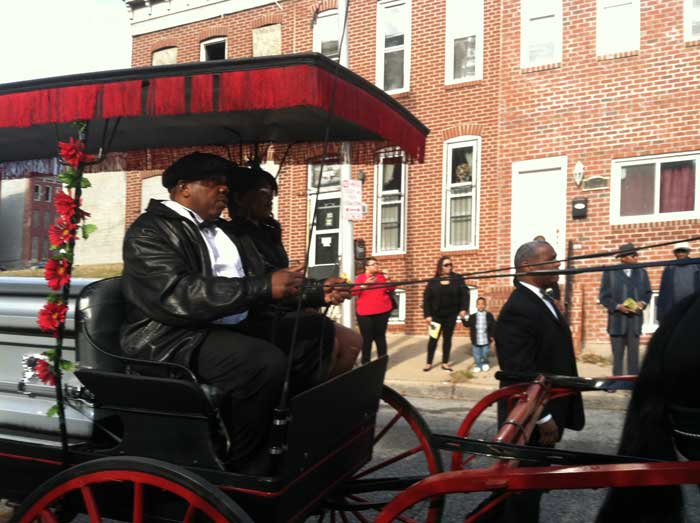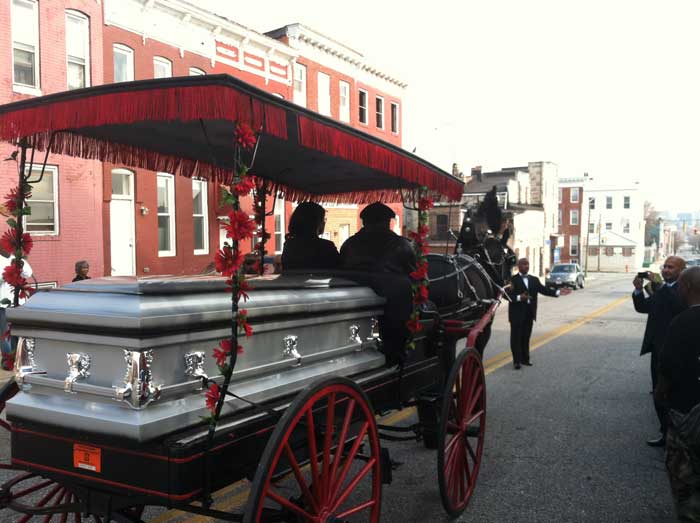In Memoriam: Remembering Walter Milton "Teeth" Kelly (July 27, 1926 - November 26, 2012)
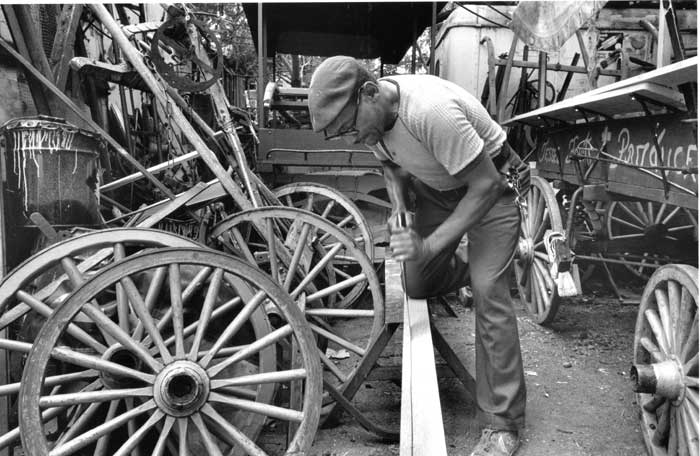
I first met “Teeth” in early Fall 1968, the year I began my Baltimore Arabbers Photodocumentary Project. I was at the old Camden Street Produce Center, near the corner of Camden and Light Streets (now a Hyatt Hotel), and I was documenting the lives of “Arabbers,” the vendors who sell their fruits and vegetables through the streets of Baltimore. Teeth was driving a truck, while almost every other Arabber had a horse and wagon. He told me to come by the Buddy Kratz stable if I wanted to get some “good pictures.” It took me a few years to get there to photograph him, as I was then focused more on Baltimore’s East Side. In the meantime, I saw Teeth all over the city–if he wasn’t Arabbing from his own horse and wagon, he was shoeing horses, fixing or making wagons for someone, or heading north to Pennsylvania to an Amish market for their weekly sale of ponies or to get a few loads of hay or special feed. And I learned that in addition to these trips, the truck I’d seen him with was often used by him for bulk purchases that he later resold to other Arabbers.
In the spring of 1972, Ralph Rinzler, one of the founders of the Smithsonian Folklife Festival and a neighbor of mine on Capitol Hill, stopped me on the street. That summer Maryland was to be the featured state at the Festival, and he wanted to get me involved in coordinating bringing the Arabbers to the Festival on the Mall—apparently the Smithsonian folklorists doing fieldwork in Baltimore kept being asked by the Arabbers if they were working with me.
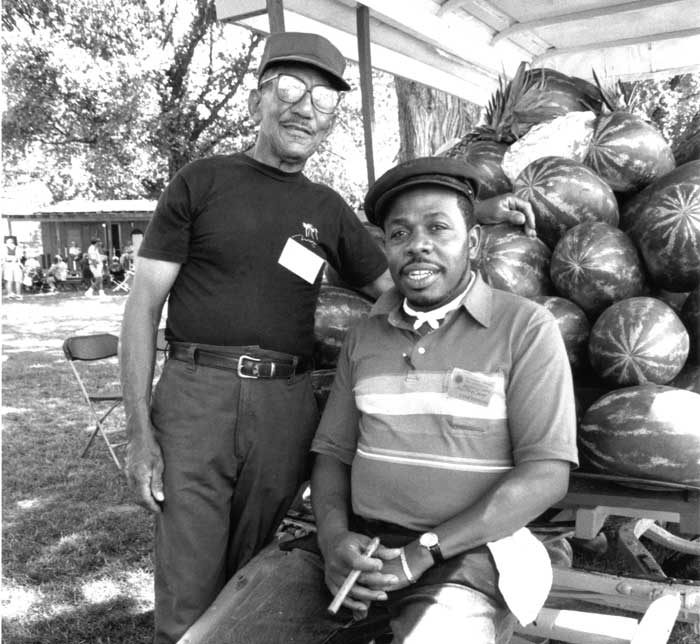
Walter “Teeth” Kelly and Paul “Sonny” Diggs came to that 1972 Festival, along with several other Arabbers. Teeth’s wife, Lillie Ruth Kelly, and their two daughters, Lisa and Denise, also came and worked the Festival on a separate wagon. Ralph was so pleased with their participation that the Arabbers became the only group invited back every year after that initial visit. While working at the 2001 Festival, Lillie had a heart attack and died. Teeth continued to come each year until 2011, when he took ill and never recovered. He passed away on November 26, 2012.
Over the years, Teeth became a close friend. He was a good man, soft spoken, scrupulously honest, and generous with both his time and knowledge. I loved spending time with him as he was always serious about his work, focused on what he was doing, and deeply knowledgeable about Arabbing practices and traditions.
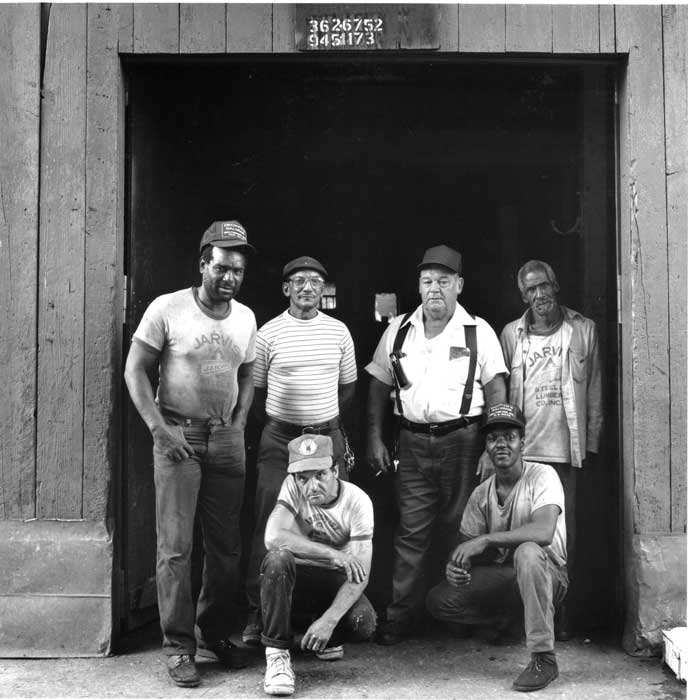
Like many other Arabbers, he always held other jobs. In World War II, he served honorably and received a Purple Heart. He was later employed at Domino Sugar, drove a cab, and worked for and retired from the Social Security Administration. Throughout his life, no matter what he was doing, he visited the stables daily to care for his horses and help others. I miss him and the Arabbing he so ably represented.
Roland L. Freeman is a photographer, fourth-generation Arabber, and he has been a research associate in the Smithsonian’s Center for Folklife and Cultural Heritage since 1972. He has documented the history of Baltimore’s Arabbers in the book The Arabbers of Baltimore (Tidewater Publishers, 1989).
Listen to an audio recording of Walter Kelly made by Marjorie Hunt and Steve Zeitlin in Baltimore in 1978. Here, Kelly shares a shout used to sell watermelon and a “coming in song” that he sings when heading home for the day.
Click here for another image of Walter “Teeth” Kelly as well as documentation of his funeral procession.
